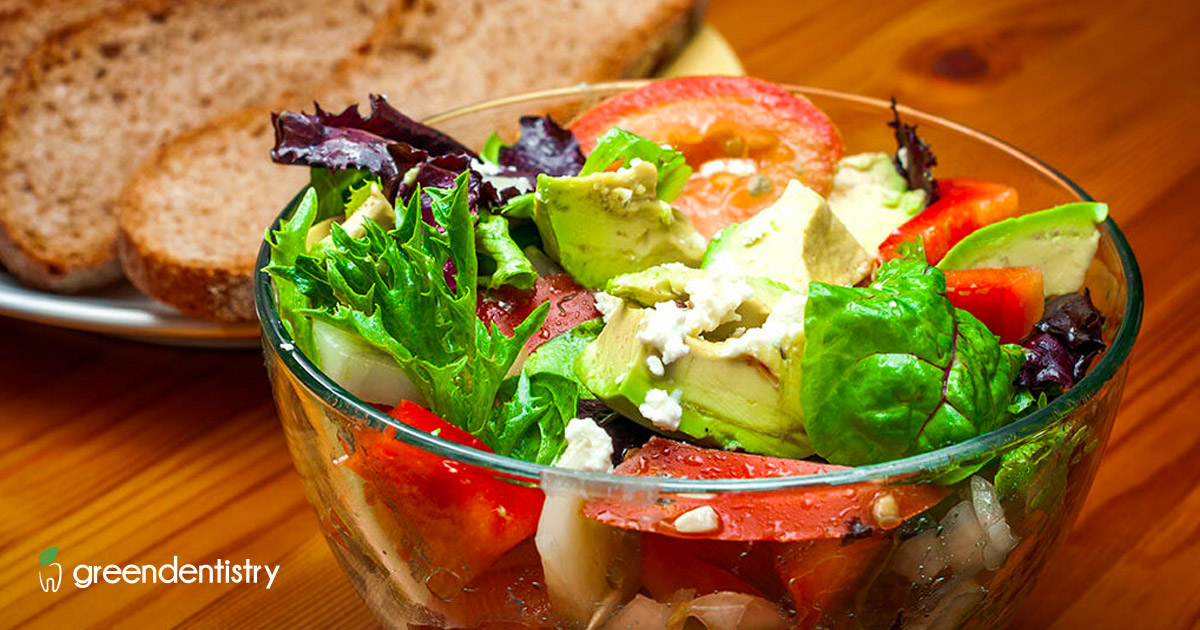Good and Bad Foods for Sleep Apnea (Podcast)
Dr. Nammy Patel from Green Dentistry talks with John Maher about how diet affects sleep apnea. She explains why people with sleep apnea should avoid meat, dairy, and gluten, and she talks about the foods that can help with this condition.
John Maher: Hi, I’m John Maher, and I’m here today with Dr. Nammy Patel, founder of Green Dentistry in San Francisco, California, helping patients recognize the vital connection between dental health and whole body health, and author of the bestselling book Age with Style: Guide to a Youthful Smile and Healthy Living. Today, our topic is good and bad foods to eat for sleep apnea. Welcome, Dr. Nammy.
Dr. Nammy Patel: Hi, John. Thank you for having me.
How Does Diet Play a Role in Sleep?
John: Sure. Dr. Nammy, how does diet play a role in sleep, especially for people with conditions like sleep apnea?
Dr. Nammy: Diet is really key, believe it or not, when it comes to sleep apnea. Actually, I shouldn’t just say sleep apnea. I should say sleep deprivation. One of the most common and important things to avoid is going to be dairy and gluten and meats.
The main reason for these is because they are highly… Well, meat is obviously highly processed, but dairy and gluten tend to have a lot of allergens in them that actually, when you are having these, they actually block the back of your throat and cause it to swell, which makes it really difficult for your body to breathe and get good, quality oxygen. One of the key things that I always say is definitely avoid dairy and definitely avoid gluten, and also meat for sure.
Should Everyone With Sleep Apnea Avoid Meat and Allergens?
John: Okay. Is that the case for anybody who has sleep apnea and sleep deprivation issues, or is it just if you have a particular sensitivity or allergy to those things?
Dr. Nammy: No, to be honest, I would say for anybody with sleep apnea, food is really important, because what happens is when our bodies go to sleep, they’re actually detoxing. When we eat something, it’s not really just eating the food itself. For example, a salad, even a salad, has oils in it. It has nuts in it. It has seeds, and it has a lot of different spices. So what actually happens is that when we eat that food, our liver actually has to work to detoxify it. It has to break down the oil. It has to break down the fats. It has to break down everything into its building blocks, and it takes energy.
If we eat foods that are non-allergenic and also lighter… We always talk about having a lot of healthy greens and eating earlier in the day versus later in the day. That makes a difference as well. What happens is our bodies can actually sleep better. We’re going to get better-quality sleep, and we’re going to lower the amount of inflammation that we have.
How the Food Industry Has Changed Over the Years
John: When I was a kid, my mom would always, if I was having a hard time getting to sleep, she’d warm up some milk for me and have warm milk before bed. That’s probably not a great idea then.
Dr. Nammy: To be honest, I actually grew up having that too, and it’s really funny that I used to think that warm milk makes me sleepy. There’s comfort to it, for sure. There’s definitely a lot of comfort to it. But what has happened, John, is that when you and I were younger, the milk wasn’t as processed as it is right now, because the quality of milk… Because of our logistics of production and things like that, there’s so many hormones that go into it. There’s so many preservatives and additives that go into the milk. It did work when we were children, but nowadays, because of the commercialization of the food industry, it’s actually having the opposite effect, where it keeps people up versus helping them sleep.
Foods That Can Help With Sleep Apnea
John: Right. You mentioned a few things that people should avoid. Are there foods that people should eat more of in order to help with sleep apnea and sleep deprivation?
Dr. Nammy: The things that I really like that are really great for sleep apnea are going to be just leafy greens. Then if you’re going to eat something processed or heavy, eat it during the day, so like for your lunch meal. Instead of making it your meal at night, have it earlier in the day, and then have a ton of water so your body can eliminate and excrete all the toxins.
John: Have that water after that big meal in the middle of the day, so that by the time you get to bed, you’ve already gotten rid of those toxins.
Dr. Nammy: Exactly.
Foods to Avoid If You Have Sleep Apnea
John: Right. Other than dairy and gluten and meats, are there other foods that people with sleep apnea should avoid? For example, I’ve heard that bananas can increase mucus production, and that might be a problem for people with sleep apnea. Are there other things like that?
Dr. Nammy: Of course, milk. Bananas do cause mucus as well. Again, it has chemicals in it. But the most important are going to be burgers, steak, pork, lamb, bacon, sausage. Anything that’s high in saturated fats, it’s going to cause a lot of inflammation for the body. Those would be the things I would say you avoid.
Contact Green Dentistry to Get Help With Sleep Apnea
John: All right. Well, that’s really great information. Dr. Nammy, thanks again for speaking with me today.
Dr. Nammy: My pleasure.
John: For more information about Green Dentistry, visit the website at sfgreendentist.com, or call (415) 433-0119.




